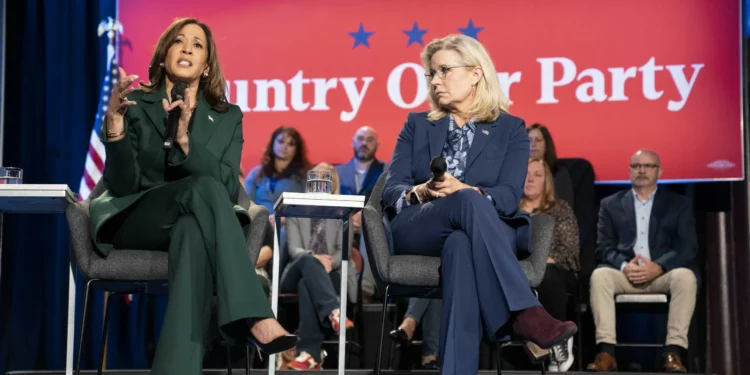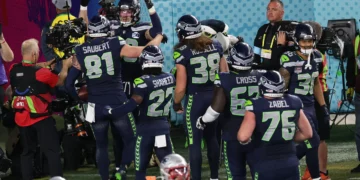Harris’ campaign has been making waves in the political world, with her strong stance on important issues and her charismatic personality. However, her recent campaign event in Iowa has garnered some negative attention from at least one prominent Muslim American group.
The incident in question occurred when a man was escorted out of the event by security. The man, identified as a Muslim-American activist, was reportedly asking tough questions to Harris about her stance on certain policies. The incident has sparked criticism from the Muslim American community, who feel that Harris’ campaign is not inclusive enough.
The man in question, Nihad Awad, is the national executive director of the Council on American-Islamic Relations (CAIR), one of the largest and most prominent Muslim American advocacy groups in the country. Awad has been a vocal critic of Harris’ policies and has raised concerns about her stance on issues such as the Muslim travel ban and the treatment of immigrants at the US-Mexico border.
In a statement, Awad expressed his disappointment with the way he was treated at the event, saying, “I was hoping for a productive and respectful dialogue with Senator Harris, but unfortunately, I was met with aggression and was escorted out of the event.” He also added that “it’s concerning to see a presidential candidate not willing to engage with the Muslim community and address our concerns.”
Harris’ campaign has responded to the incident, stating that they regret any misunderstanding and that they value open and productive dialogue with all communities. They also clarified that the man was removed from the event because he was causing a disturbance and not because of his religion or views.
Despite the campaign’s response, the incident has left a sour taste in the mouths of many Muslim Americans. CAIR has called for an apology from the Harris campaign and for a meeting between Harris and Muslim American leaders to address their concerns.
This incident is not the first time Harris’ campaign has faced criticism from the Muslim American community. In a recent op-ed for the Washington Post, Awad highlighted Harris’ controversial past as a prosecutor, where she defended the use of the death penalty and fought to uphold wrongful convictions.
Harris has also faced criticism for not attending the annual Islamic Society of North America (ISNA) convention, the largest gathering of Muslim Americans in the country. Many other presidential candidates, including Senator Bernie Sanders and Mayor Pete Buttigieg, have attended the convention in the past.
In light of these criticisms, some may wonder why Harris’ campaign has not made more efforts to reach out to the Muslim American community. As the fastest-growing religious group in the country, with a population of over 3.5 million, Muslim Americans can play a crucial role in the upcoming presidential election.
Harris’ campaign has made efforts to reach out to other minority communities, such as the African American and Latino communities. However, it is important for her to also address the concerns and issues facing the Muslim American community, especially in the current political climate.
It is also worth noting that Harris has a strong record of fighting for religious freedom and equality. As Attorney General of California, she successfully defended the right of Muslim inmates to practice their faith and fought against discriminatory policies targeting Muslims.
In addition, Harris has also spoken out against the Muslim travel ban, calling it “unconstitutional” and “discriminatory.” She has also pledged to end the ban if elected as president.
It is clear that Harris’ campaign has a strong stance on issues important to the Muslim American community. However, the incident at the Iowa event has shed light on the need for open and productive dialogue between Harris and Muslim American leaders.
As the presidential campaign continues, it is imperative for all candidates to engage with and listen to the concerns of all communities, including the Muslim American community. Only through open and respectful dialogue can we work towards a more inclusive and united country.






